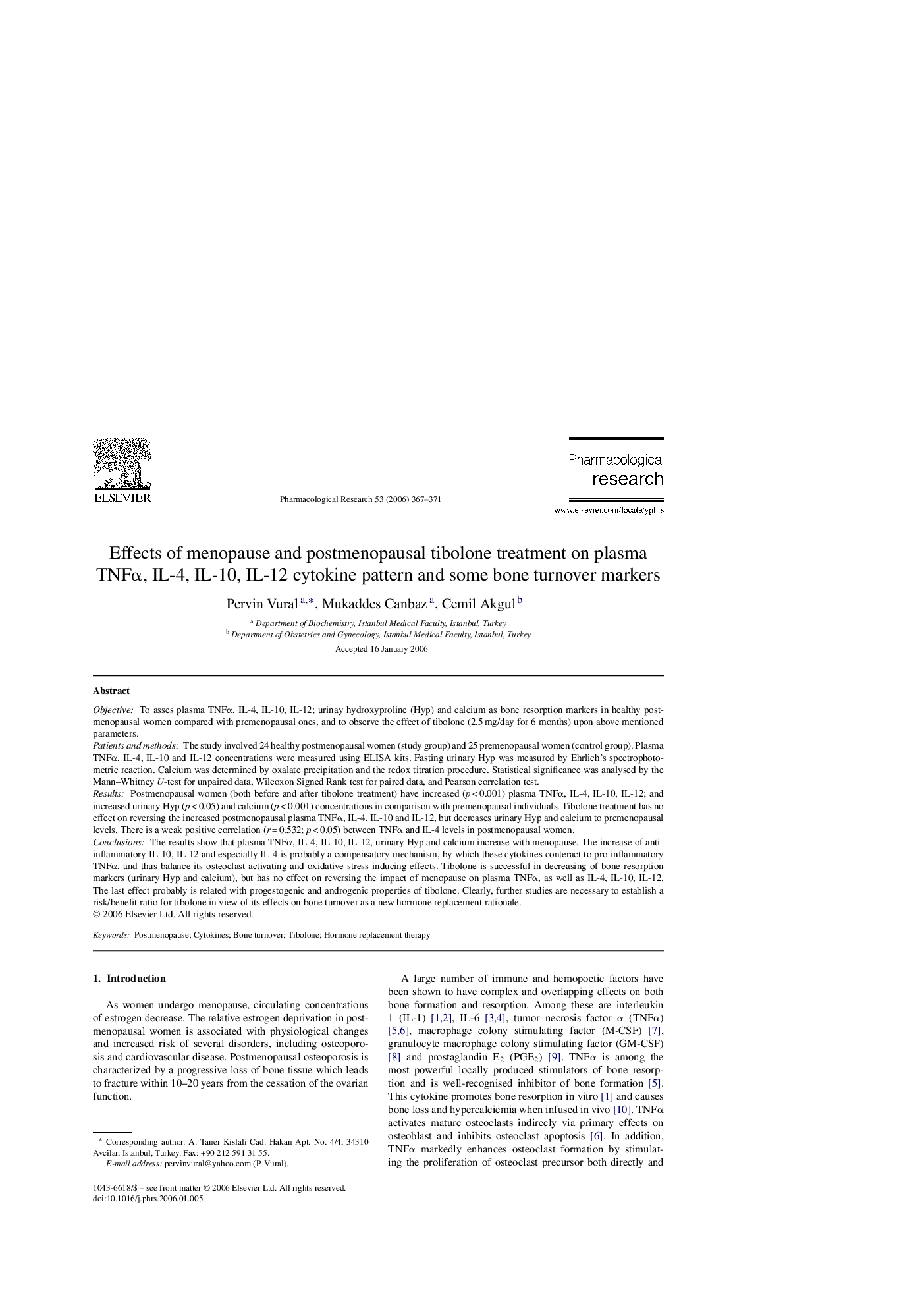| Article ID | Journal | Published Year | Pages | File Type |
|---|---|---|---|---|
| 2562687 | Pharmacological Research | 2006 | 5 Pages |
ObjectiveTo asses plasma TNFα, IL-4, IL-10, IL-12; urinay hydroxyproline (Hyp) and calcium as bone resorption markers in healthy postmenopausal women compared with premenopausal ones, and to observe the effect of tibolone (2.5 mg/day for 6 months) upon above mentioned parameters.Patients and methodsThe study involved 24 healthy postmenopausal women (study group) and 25 premenopausal women (control group). Plasma TNFα, IL-4, IL-10 and IL-12 concentrations were measured using ELISA kits. Fasting urinary Hyp was measured by Ehrlich's spectrophotometric reaction. Calcium was determined by oxalate precipitation and the redox titration procedure. Statistical significance was analysed by the Mann–Whitney U-test for unpaired data, Wilcoxon Signed Rank test for paired data, and Pearson correlation test.ResultsPostmenopausal women (both before and after tibolone treatment) have increased (p < 0.001) plasma TNFα, IL-4, IL-10, IL-12; and increased urinary Hyp (p < 0.05) and calcium (p < 0.001) concentrations in comparison with premenopausal individuals. Tibolone treatment has no effect on reversing the increased postmenopausal plasma TNFα, IL-4, IL-10 and IL-12, but decreases urinary Hyp and calcium to premenopausal levels. There is a weak positive correlation (r = 0.532; p < 0.05) between TNFα and IL-4 levels in postmenopausal women.ConclusionsThe results show that plasma TNFα, IL-4, IL-10, IL-12, urinary Hyp and calcium increase with menopause. The increase of anti-inflammatory IL-10, IL-12 and especially IL-4 is probably a compensatory mechanism, by which these cytokines conteract to pro-inflammatory TNFα, and thus balance its osteoclast activating and oxidative stress inducing effects. Tibolone is successful in decreasing of bone resorption markers (urinary Hyp and calcium), but has no effect on reversing the impact of menopause on plasma TNFα, as well as IL-4, IL-10, IL-12. The last effect probably is related with progestogenic and androgenic properties of tibolone. Clearly, further studies are necessary to establish a risk/benefit ratio for tibolone in view of its effects on bone turnover as a new hormone replacement rationale.
